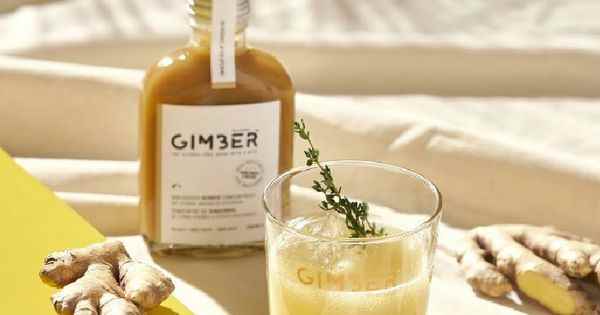Posted on 01/29/2021
2 min read
As the “dry january” draws to a close, the nolo trend (little or no alcohol) is attracting more and more consumers. There are many “sober curious” eager to discover alternative drinks that are just as festive, but without alcohol. What does it give ?
Would you like a little drink again … without alcohol? Faced with spirits, “nolo” (“no alcohol” or “low alcohol”) drinks are very successful. The IWSR firm, specializing in the analysis of the alcoholic beverages market, took an interest in this non-alcoholic trend. According to the numbers, sales of low or no alcoholic beverages grew by 20% in France between 2017 and 2018 and by 30.5% between 2018 and 2019. And everything suggests that this market will continue to grow.
The nolo, a subversive trend?
The joyous sobriety movement begins in the United States where Ruby Warrington’s book, “Sober Curious”, is being emulated by millennials, concerned about their well-being and their health. In France, the recent release of Claire Touzard’s work, “Sans Alcool”, is in the same vein. The author does not hesitate to qualify the choice of zero alcohol as “subversive”. In a country where sharing and celebrating is often synonymous with – a lot – drinking, choosing sobriety is an act of “rebellion.” Because the consumption of the French, although in decline, remains one of the highest in the world, according to INSEE. And France is ranked 8th in Europe.
Plants, cocktails and #soberlife
As young people move away from alcohol, many brands are choosing to adapt to new consumption needs. Among the new entrants, we find brands with slick packaging that include classic alcohols. But on the flavor side, they play on the alliance of herbs and fruits skilfully balanced. This is the case with Ceder’s alcohol-free gins from Pernod Ricard, or Atopia, plant extracts and natural flavors. In the same vein, we find JNPR with a floral bouquet or even Gimber, a concentrate of ginger for the aperitif.
On the beer side, many brewers offer alternatives. Asked by Europe 1, Maxime Costilhes, General Delegate of Brasseurs de France, explains that “for 4-5 years, manufacturers have developed techniques for cooling, dealcoholization and interruption of fermentation which make it possible not to alter the taste of beer” . A trend closely followed, therefore, by some 2,000 French craft breweries, but also by major manufacturers, such as Heineken with its 0.0 beer.
For fans of table wines, there are many alternatives. Among them, the French Petit B Interest, whose co-founder Dominique Laporte is the best sommelier in France, markets red, white or rosé wines made from a selection of grape varieties and blends, like a classic grand cru.
Alcohol-free bar
And the trend doesn’t stop there. In addition to the new Nolo beverage brands, “dry bars” have adapted and offer alcohol-free menus. This is the case of the Listen Bar in New York, of the Virgin Mary in Dublin. In France, Maw of Joy had opened in Nantes. While the bar is closed due to Covid, it does offer a selection of drinks to be delivered to bubble without ethanol.
Alcohol, beware of excess
Under its pop airs, the “nolo” trend also represents a major public health issue.
According to Public Health France, alcohol consumption “is one of the three leading causes of preventable death with 41,000 deaths in 2015”. As a reminder, it should not exceed 10 glasses of alcohol maximum per week or 2 glasses of alcohol maximum per day, and not every day.
A good reason to fall back on a good mocktail.
.
dts4
